His Whole Body Was Itchy: What She Thought Was a Common Allergy Was Hiding Something More Serious
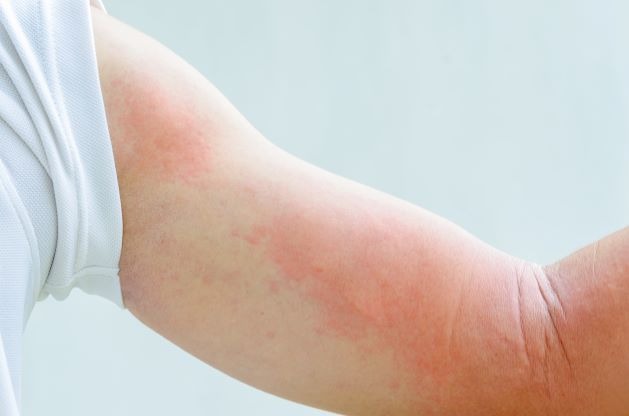
Itchy skin is a symptom many people experience at some point in their lives. Often, the cause is minor — a reaction to a new detergent, dry weather, or seasonal allergies. However, in some cases, persistent or widespread itching may point to a more complex health condition, such as chronic hives (also known as chronic urticaria).
This article explores what hives are, how they differ from allergies, what signs to look for, and how medical professionals suggest managing the condition effectively using verified and safe approaches.
Understanding Hives: More Than Just an Allergy
Hives (urticaria) are raised, red, itchy welts that appear on the skin. According to the American Academy of Dermatology (AAD), they occur when the body releases histamine and other chemicals into the bloodstream, typically in response to an allergen or other trigger.
There are two main types:
- Acute hives: Appear suddenly and typically resolve within 6 weeks.
- Chronic hives: Persist for more than 6 weeks and may recur for months or years.
While acute hives are often linked to allergic reactions — such as to foods, medications, or insect stings — chronic hives are less likely to be caused by identifiable allergens. In many cases, the exact cause remains unknown, though some research links them to autoimmune responses or thyroid disorders.
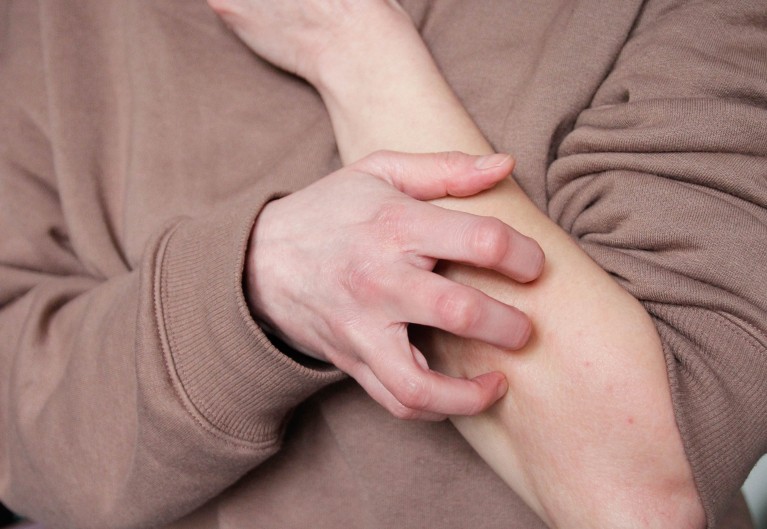
Common Symptoms of Hives
According to the Mayo Clinic, the following symptoms are typical in cases of urticaria:
- Raised, itchy welts that may be red or skin-colored
- Welts that vary in size and shape, and may join together to form larger areas
- Welts that appear and fade repeatedly, often moving to different parts of the body
- Swelling (angioedema), particularly around the eyes, lips, hands, or feet in some cases
- Itching that may intensify at night or after physical activity
In severe cases, hives may be accompanied by dizziness, difficulty breathing, or swelling of the throat — which requires immediate emergency care.
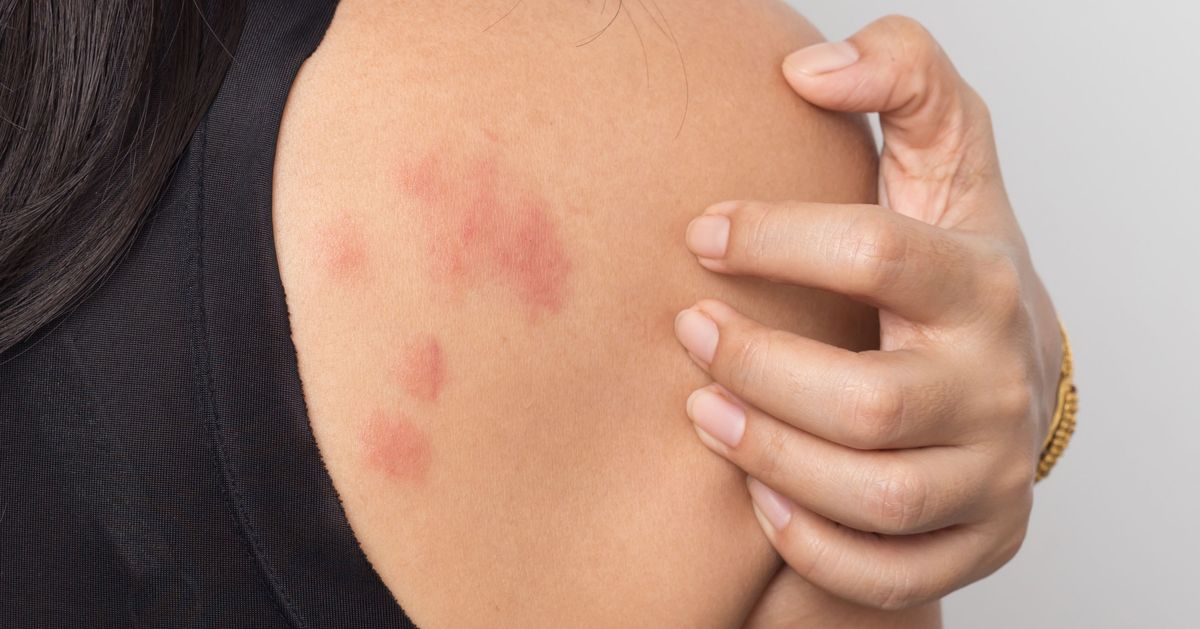
What Causes Hives?
Hives can be triggered by a wide variety of factors. Some of the most common causes identified by the NHS and CDC include:
- Food allergens: Shellfish, nuts, eggs, and certain fruits
- Medications: Antibiotics like penicillin, nonsteroidal anti-inflammatory drugs (NSAIDs)
- Environmental factors: Pollen, animal dander, or insect bites
- Physical stimuli: Pressure, temperature changes, sunlight, or exercise
- Infections: Viral infections such as colds or flu
- Stress and anxiety: Emotional triggers may exacerbate symptoms in sensitive individuals
- Autoimmune reactions: In some chronic cases, the immune system may mistakenly attack healthy skin cells
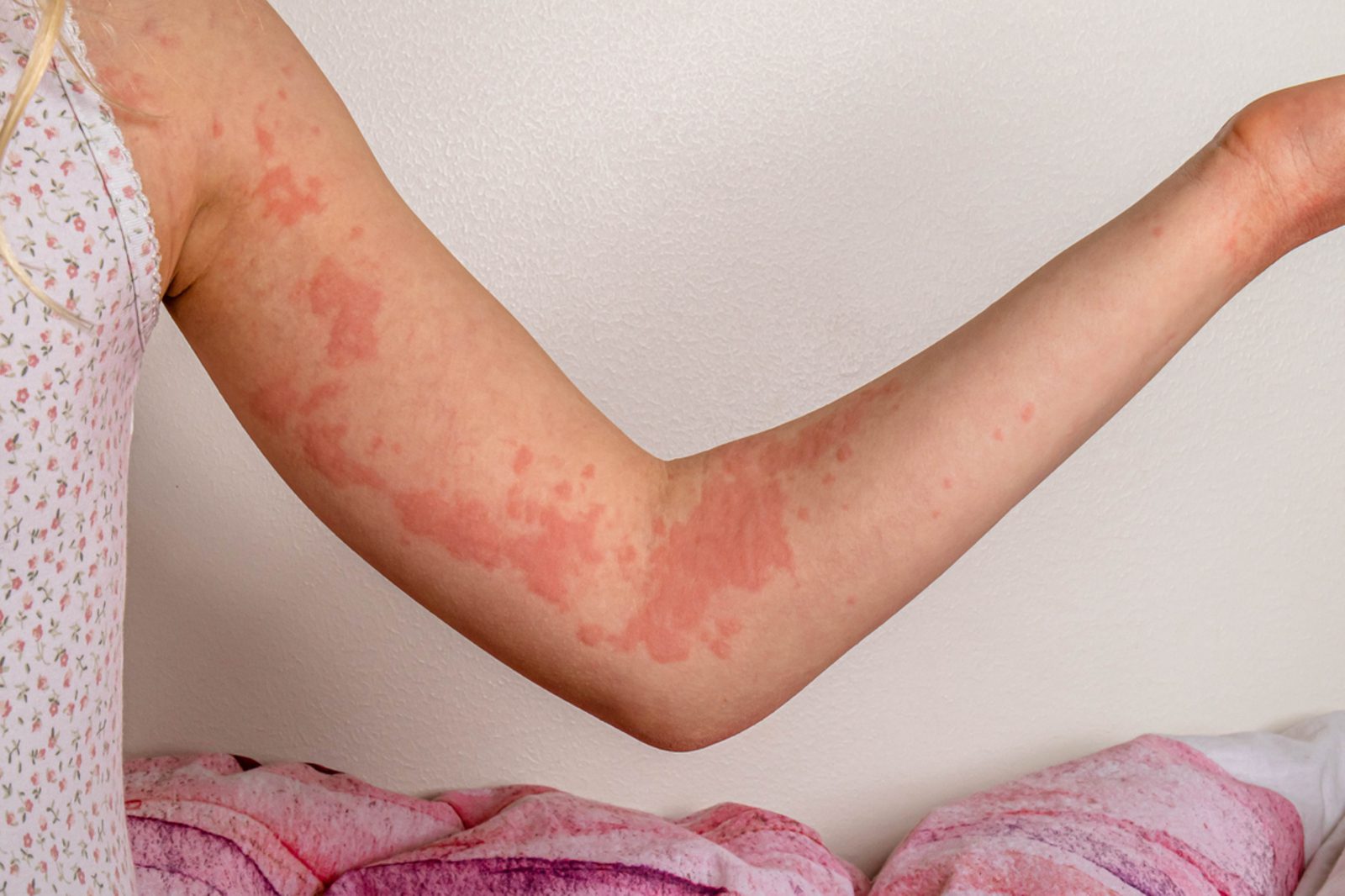
When to See a Doctor
Most mild cases of hives resolve without treatment or respond well to over-the-counter antihistamines. However, you should consult a healthcare provider if:
- Hives persist for more than a few days
- You experience recurrent episodes without a known trigger
- The welts are painful or develop blisters
- You have swelling of the face or difficulty breathing
A healthcare provider can assess your symptoms, rule out underlying causes such as autoimmune diseases or infections, and recommend safe and effective treatment options.

Evidence-Based Treatments for Hives
1. Antihistamines
First-line treatment usually involves non-drowsy antihistamines such as cetirizine or loratadine. These block histamine, reducing itching and swelling.
2. Prescription Medications
If symptoms are not controlled by standard antihistamines, your doctor may prescribe stronger options or a combination of medications, including:
- Hydroxyzine or diphenhydramine (used at bedtime)
- Montelukast (a leukotriene receptor antagonist)
- Corticosteroids (short-term use for severe cases)
- Omalizumab (an injectable biologic used in chronic hives)
3. Avoidance of Triggers
Once triggers are identified through clinical testing, avoiding them is key to preventing future outbreaks.
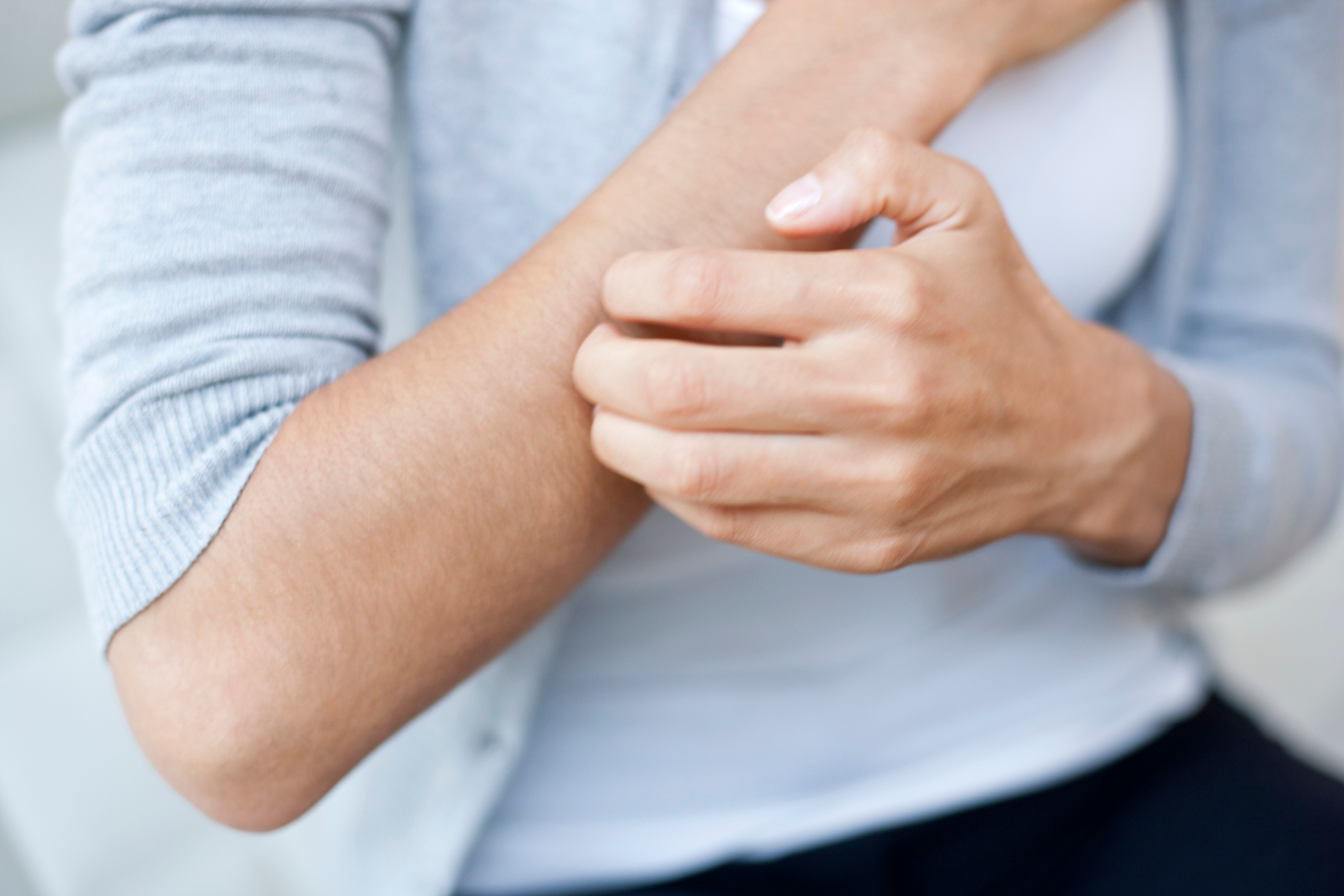
Home Care Tips That Are Backed by Science
While medical evaluation is crucial, some supportive measures can help alleviate itching and discomfort:
- Cool compresses: Applying a cool, damp cloth to the affected area can soothe the skin
- Lukewarm baths: Soaking in colloidal oatmeal baths may reduce irritation
- Fragrance-free moisturizers: Keeping skin hydrated with unscented lotions can reduce sensitivity
- Wear loose-fitting clothing: Cotton fabrics are gentler on irritated skin
- Avoid hot showers: Heat can exacerbate symptoms
These remedies are recommended by both the AAD and the National Eczema Association, particularly for individuals with sensitive skin conditions.
Myths and Misinformation to Avoid
It’s important to be cautious with information found online or on social media. Some common misconceptions include:
- “Natural remedies cure chronic hives”: While natural remedies may relieve mild symptoms temporarily, they should never replace evidence-based medical treatments.
- “Itchy skin is always an allergy”: Itching can signal a wide range of conditions, including liver disorders, kidney problems, or autoimmune diseases. A proper diagnosis is essential.
- “Hives are contagious”: Hives themselves are not contagious, although underlying infections that trigger them could be.
Always consult a licensed healthcare provider before trying any treatment, especially if it involves essential oils, herbal products, or supplements, which may cause adverse reactions.
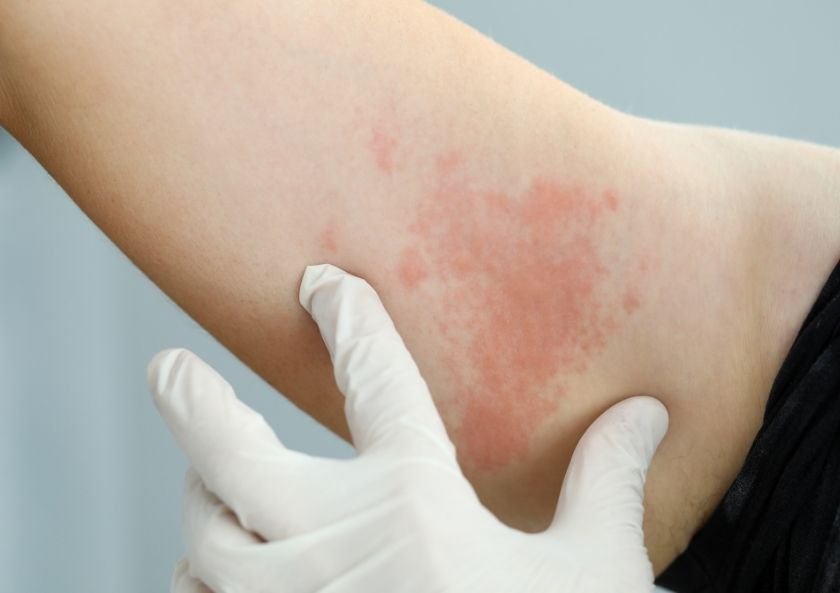
Living with Chronic Hives
Chronic hives can be frustrating, but with proper management, individuals can lead full and healthy lives. The key is consistent monitoring, avoiding known triggers, and staying in regular contact with your healthcare provider. According to the AAD, most chronic cases improve over time, and many patients eventually experience complete resolution.
Support groups, both online and in-person, may also be helpful for emotional support and sharing coping strategies.
Conclusion
While an itchy sensation may seem minor at first, persistent or widespread hives should not be ignored. With professional diagnosis and a combination of safe treatments and supportive care, hives can be effectively managed. Staying informed and seeking help early is the best way to protect your skin — and your overall well-being.
Prince William decided to announce the saddest news that leaves fans in tears : “My wife it’s been… See more

The British royals seem to be having a lot on their plate recently. This last month had been a hectic one, with Kate Middleton undergoing an abdominal surgery which requires plenty of time for recovery and King Charles being diagnosed with cancer.
According to the Palace, the Princess of Wales would only be able to return to her royal duties around Easter, although she does some work from home even now.
Kate’s planned abdominal surgery shook things a bit not only for her but for her husband as well. Just like Kate, William was also forced to either postpone or reschedule many of his royal duties during her hospital stay because he needed to take care of the couple’s three children who hadn’t visited their mother at the London Clinic.

William had the help of the family’s nanny, Maria Teresa Turrion Borrallo.
Borrallo has been with the family since Prince George was just 8 months old.
“She is not married and doesn’t have a boyfriend, as her life is totally dedicated to the family she is working with. She is known for being totally professional – married to the job,” an insider told Hello Magazine.
When the couple are away from home, the nanny makes all the decisions regarding the children.
Borallo was trained at the prestigious Norland College in Bath. “Maria is firm, but she never acts unilaterally with the children on discipline. Kate and William, along with Maria, are strict with the children but have this magic ability to appear not to be,” a royal insider said.
A royal insider previously said, “Maria is firm, but she never acts unilaterally with the children on discipline. Kate and William, along with Maria, are strict with the children but have this magic ability to appear not to be.”
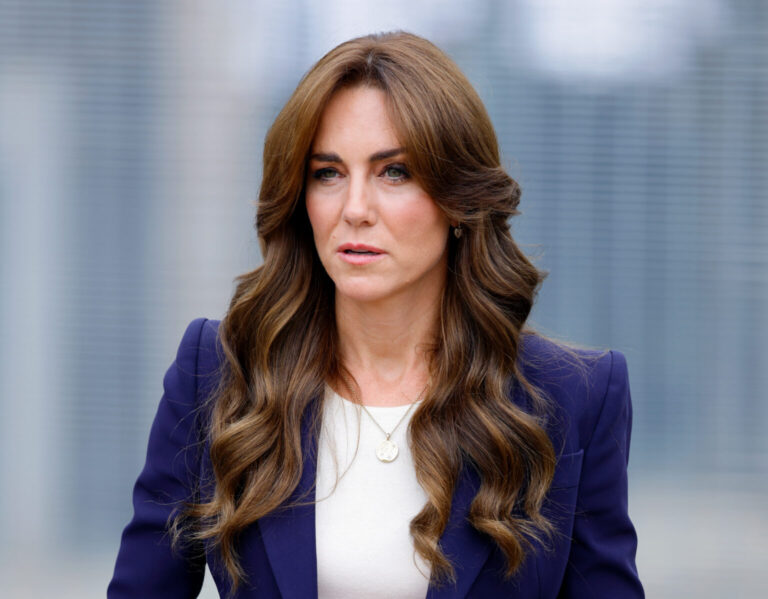
When she was hired, Kensington Palace released a statement: “Maria is a full-time nanny who started work with us recently and will be accompanying the Duke and Duchess and Prince George to New Zealand and Australia. We will not be giving further details on Maria or her employment, except to say that the Duke and Duchess are, of course, delighted she has chosen to join them.”
Speaking with Hello Magazine, parenting expert Jo Frost explained that Maria is a very important person for William, Kate, and their children.
“The blessing of her nurturing ways and wonderful service to the family leave the children in good steady hands, affording William the flexibility to be present as a father, attend to his royal duties where he can at home and be the emotional support he will want to be for his wife,” she said.

As of William, royal biographer Angela Levin states that he now faces a “difficult time” having to balance between his work and his private life. On top of that, his brother Harry was in Britain, and as we all know the relationship between the two is still a rocky one. The royal expert said that William “got used to Harry being rude, unkind and attacking his wife.”
“It’s very hard for him. He doesn’t want to have anything to do with Harry at the moment, and you can’t blame him. Because he’s been so rude and told untruths about both William and Catherine,” Angela Levin told GB News.
“I don’t know how you completely can change that. It’s difficult, isn’t it? It’s difficult to completely turn over a relationship and forget all the past. I don’t think people can do that.”
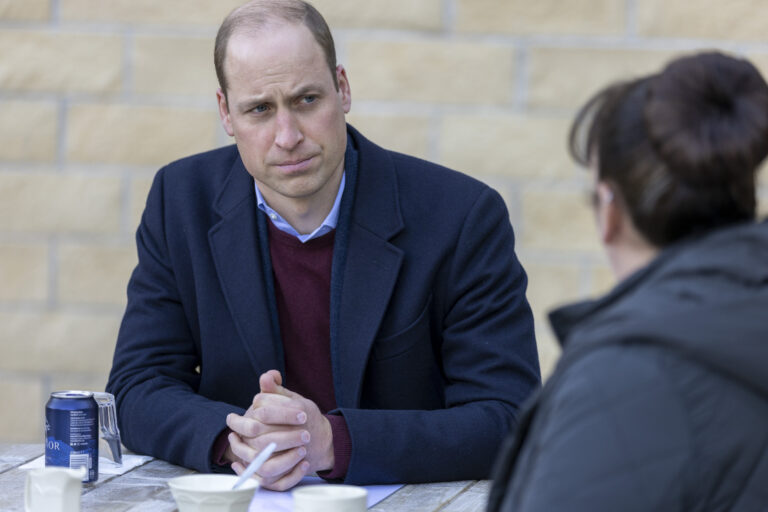
CLITHEROE, UNITED KINGDOM – JANUARY 20: Britain’s Prince William, Duke of Cambridge visits NHS staff and patients at Clitheroe Community Hospital and hear about their experiences during the Covid-19 pandemic on January 20, 2022 in Clitheroe, East Lancashire, England. (Photo by James Glossop-WPA Pool/Getty Images)
Isabel Webster, the host of the GB News show, said she believed the Prince could feel “lonely” at this time.
“This is somebody who’s estranged from his brother, he lost his mother in tragic circumstances, recently lost his granny, who was one of the few who understood the responsibility he faces,” she said. “And one of his uncles is disgraced; now his father and wife are both unwell.”
Levin responded: “Harry said to me when I was writing his biography that he and William couldn’t be closer, we trust each other totally. We are together. We have the most amazing relationship because we’ve had the same experiences, terrible, difficult experiences. But now that’s not the case.”
On Wednesday night, Prince William attended London’s Air Ambulance Charity Gala Dinner. There, he held a speech and thanked everyone for their kind wishes regarding both his wife as well as his father, King Charles, who was diagnosed with cancer on Monday.
“Good evening everyone. Thank you all for being here. And thank you to those whose hard work has made this evening possible. I’d like to take this opportunity to say thank you, also, for the kind messages of support for Catherine and for my father, especially in recent days. It means a great deal to us all. It’s fair to say the past few weeks have had a rather ‘medical’ focus. So I thought I’d come to an air ambulance function to get away from it all,” William said.

Earlier that day, the Prince of Wales held an investiture ceremony at Windsor Castle, where he handed out more than 50 honors. Among the recipients was Patricia Sprouse who later took to LinkedIn to share the news of her honor. In her post, she revealed some details regarding Kate and the much-needed help she gets.
“What an amazing experience, the castle was just breathtaking, everyone was so lovely to us as we were just in awe of everything,” Sprouse wrote on LinkedIn. “Prince William said that Catherine had two Filipino nurses looking after her and they were amazing and kind.”